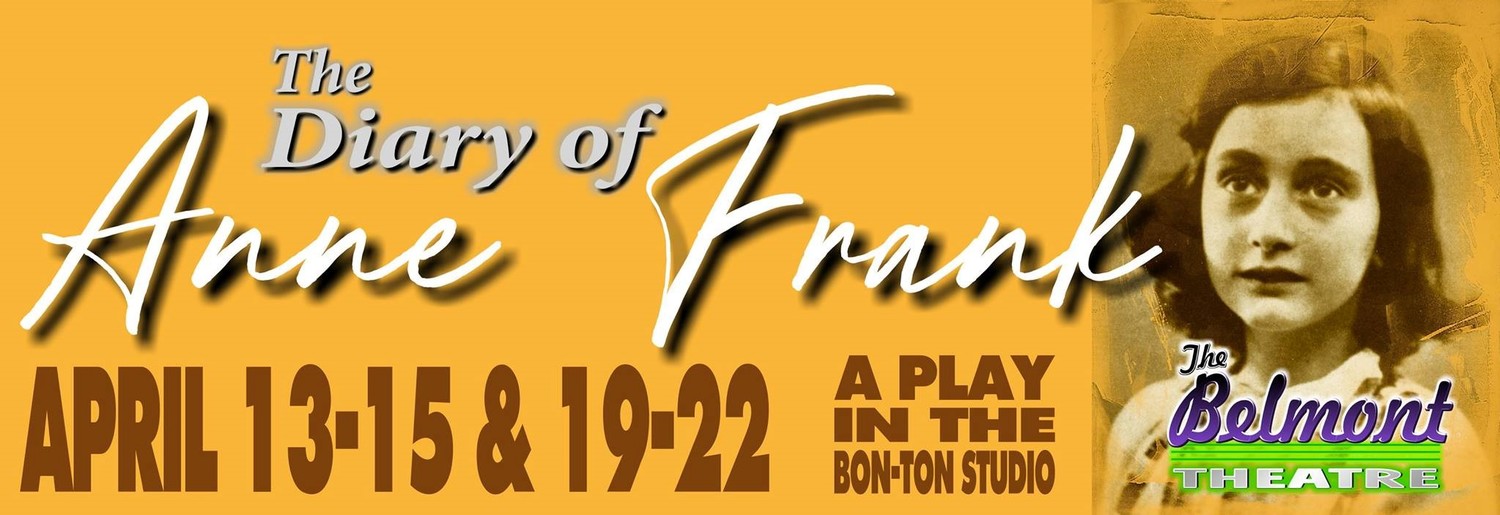Interview: Jaci Keagy of THE DIARY OF ANNE FRANK at The Belmont Theatre

The Diary of a Young Girl, commonly known as The Diary of Anne Frank, was first published in 1947. It tells the story of a young Jewish girl who, along with seven others, goes into hiding to escape the Nazis in Amsterdam. Many have read the story in school as a piece of literature or as a piece of history. The play was first performed on Broadway in 1955, and it is about to come to life in the Bon-Ton Studio at The Belmont Theatre in York. Director Jaci Keagy spoke with Broadway World about her experience directing this historic play.
BWW: Tell us a little about yourself.
Jaci: While many probably know me from my roles on stage at The Belmont Theatre, I have been directing for the past 30 some years. I was always too busy with high school shows to fit in directing at another theatre, but now that I'm retired I am happy to be able to direct at local theatres.
BWW: Why did you want to direct this particular play?
Jaci: The theatre wanted to do a classic-something serious. They actually gave me a choice of two shows. I've always wanted to direct this one. I was in it in 2002, and I was really excited at the prospect of looking at it from the point of view of the director.
BWW: For those who have read the book but not seen either the play or the movie, what should they expect from the play?
Jaci: It's very faithful to the book and movie. This is one of the most accurate scripts to the diary.
BWW: Along with being a glimpse into a time period in history, how does The Diary of Anne Frank speak to a modern audience?
Jaci: I think in two ways. For one, it is just so important that we don't forget our past and what was so real in life just two generations ago. Perhaps at first it may not seem relevant for a modern audience, but it is important to honor this part of our history. Second, it's important that we see another example of the indomitable positivity of some people. In Anne's writing, her spirit absolutely lives on and it is such a light in a world of darkness.
BWW: In your opinion what is the most powerful scene in the show?
Jaci: For me my heart starts pounding near the end when the three teens are blissfully eating fresh strawberries because I know that the Nazis are about to break down the door. With the show being done in the studio, you are right there-right in the room when the Nazi's come in. Even though I know what the lines are, I jump every time when they scream at the characters. It's a toss-up between that and Mr. Frank's monologue at the end when he tells the audience what happens to the characters. It breaks your heart because you become so invested in the characters, and to hear one by one their fate is a very powerful theatrical moment.
BWW: Critics have said that, at it's heart, The Diary of Anne Frank is a story of hope. What is the role of hope in the play and how is it portrayed in your production?
Jaci: The more we do this the more I've come to admire the dramatic structure in the play because the authors really give us a chance to get to know the characters. On one hand it breaks our hearts when the end is still the same, but the hope is in the fact that writing and words are eternal and perhaps we can learn or reaffirm the idea that even though life might be short, even if you're young you can still achieve something in your lifetime.
BWW: If you could choose another historically based show to direct, what would it be and why?
Jaci: I would love to do The Crucible. I love dramas. It really gets at the heart of our humanity and gives us something to think about.
BWW: It's a busy time of year, so why should our readers choose to make the time to come see this particular production of The Diary of Anne Frank?
Jaci: It is a rich theatrical experience. It will make people laugh and cry, and it will stick with them, especially as they experience it in the Studio Theatre. Then the fact that it's a true story, that adds even more to the gravitas of the experience.
The Diary of Anne Frank will be on stage at The Belmont Theatre April 13-22. Visit www.thebelmont.org to order your tickets.
Comments
Videos

